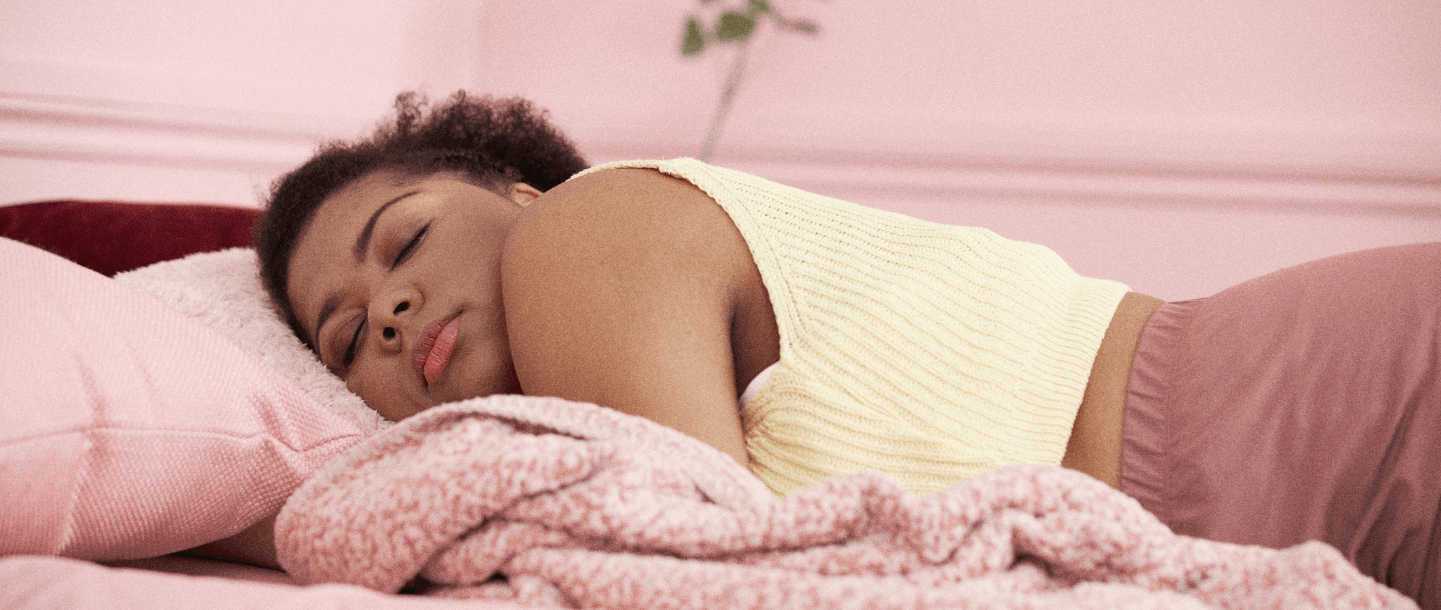Every time you get your period, you find yourself asking, do periods affect sleep?
Does your temperature get a bit wacky? Do you feel sleepier than normal? Perhaps, you just can’t fall asleep at all. Maybe you’re crampy or you just don’t feel well-rested when you wake up. Your period could be responsible.
The good news is that there are plenty of great solutions to alleviate sleep disturbance caused by your period.
Read on to see if menstruation may be messing with your sleep and what you can do to fix it immediately.
A Brief Overview: Sleep Disturbances Caused by Your Menstrual Cycle
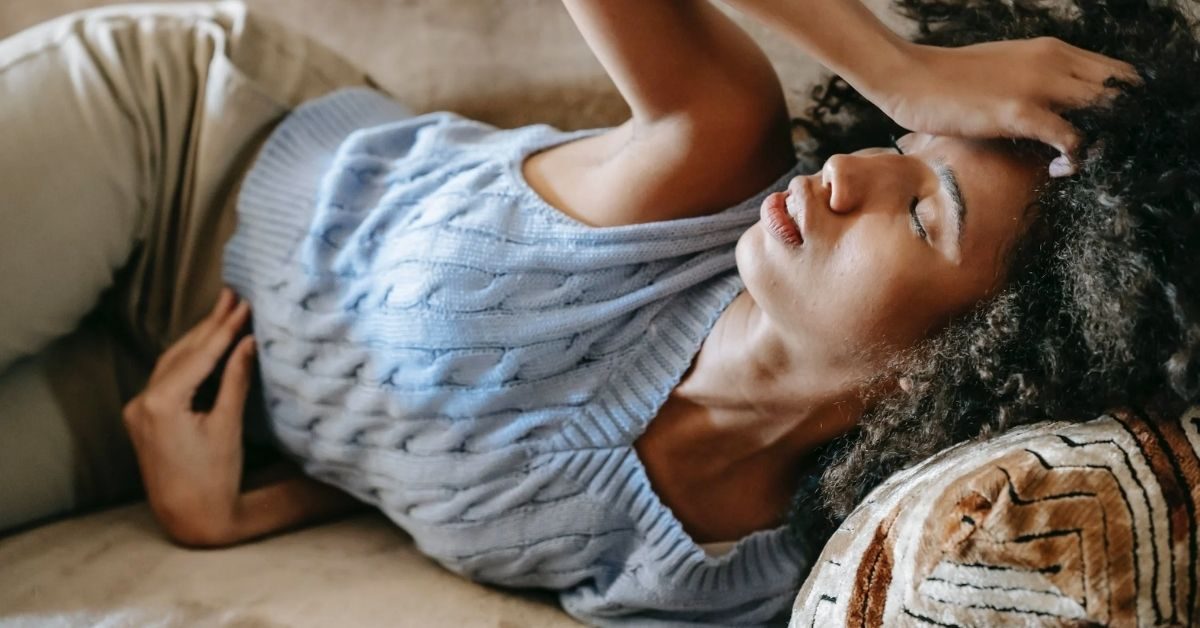
70% of women say that their sleep changes just before their period. This most often happens three to six days before your period. However, you may feel symptoms right up to and during your period.
There are some common premenstrual and menstrual symptoms that may be affecting your quality of life:
- Hormone changes
- Mood swings
- Body temperature fluctuations
- Pain
- Less REM sleep
Sound familiar? If you’re trying to sleep better at night but your period’s causing you distress, you aren’t alone. Most women experience one or more of these symptoms during their menstrual cycle.
Perhaps, CBD is the answer.

Lots of women find that CBD products help to alleviate period symptoms that affect sleep. Taken as a tincture, softgel tablets, gummies, or in oil form, CBD eases pains, helps to rebalance hormones, and reduces anxiety.
Brands like Opulent Organics have an amazing reputation:

Try Opulent Organics CBD Capsules for Sleep today and get 10% off by signing up to their mailing list and use the code FREESHIPPING at checkout for free delivery.
Do Periods Disrupt Sleep? Yes! Here’s How.

Menstruation and your sleep cycle are intertwined. Here are some of the reasons why sleep disturbances happen around the time of menstruation.
1. Fluctuations in hormones affect body temperature
Female hormones are very powerful. Ever feel just right when you fall asleep, only to wake up two hours later covered in sweat, and two more hours later shivering? This sounds like a hormone issue.
Just before your period, progesterone levels rise, causing a hotter than normal body temperature. *Cue the night sweats.*
A hotter temperature means it’s harder to sleep because melatonin— the sleep hormone— releases with our body’s natural nighttime temperature drop. (Melatonin released when it’s cold) – what article could we internally link here to explain this in more detail?
One way to lower your body temperature is to use a cooling blanket, like the Gravity Cooling Weighted Blanket.
According to one user, Bethany G:
“Possibly one of the best investments you can make for the sake of your sleep. Absolutely fantastic!”
2. A melatonin boost can make you sleepier just before your period
Melatonin is a hormone that your brain produces in response to the dark. It helps you to drift off to sleep.
But, if it’s disrupted, you may feel sleepier than normal or wide awake for seemingly no reason.
In the late luteal phase of your menstrual cycle (around day 25+) there is a rise in melatonin, likely signaled by progesterone.
This could be the reason you feel sleepier than normal the week before your period comes.
3. Menstrual symptoms can cause sleep-disrupting pain
It’s hard to sleep when you’re in pain. Period.
Nicole Telfer, Science Content Producer at Clue says:
“People who experience premenstrual and menstrual symptoms may report disrupted sleep. This can be from pain – in the form of cramps or headaches.”
That menstrual pain you are feeling is certainly not helping you get a restful night’s sleep.
4. PMS can cause mild insomnia
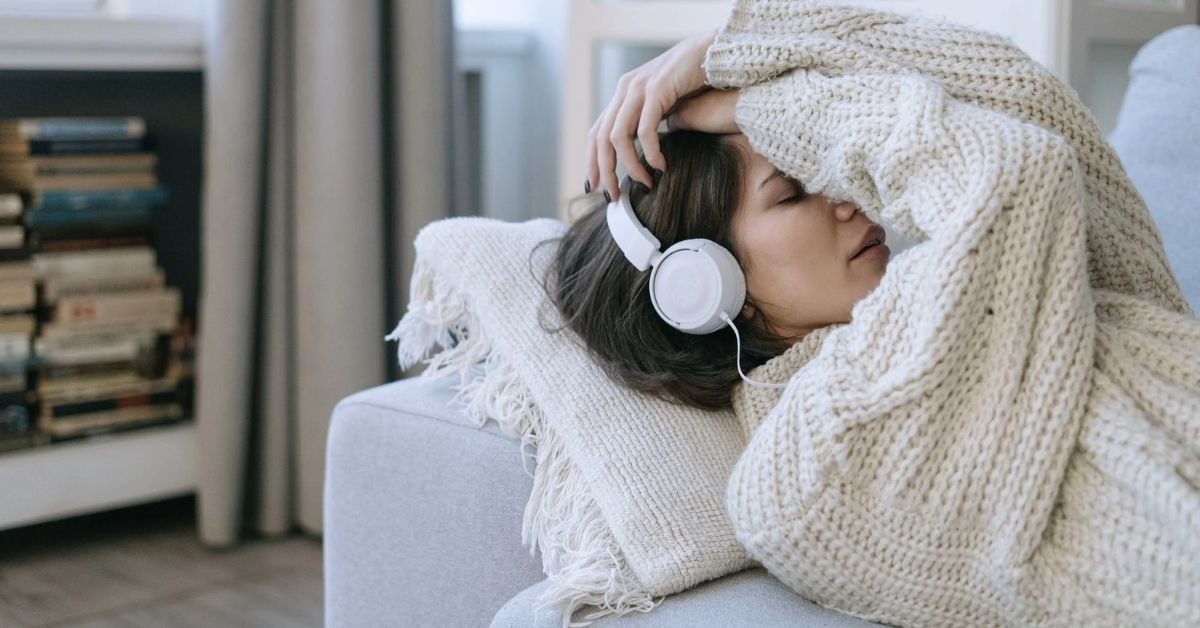
Just before your period, you may find yourself staring at the ceiling, having a harder time falling asleep for no apparent reason. One of the more common symptoms of PMS is mild insomnia.
Also, according to Nicole Telfer:
“People who have premenstrual mood disorders are more likely to experience sleep disturbances like insomnia, hypersomnia, fatigue and even disturbing dreams during the luteal phase.”
Sleep studies among women with regular menstrual cycles also show that women on the first or second day of menstruation have more trouble falling asleep, sleep fewer hours, and spend a lower percentage of time in deep sleep.
5. PMS reduces subjective sleep quality
Perhaps you have no problem falling asleep, or even staying asleep, but you notice that you wake up feeling tired.
Poor sleep quality can be just as bad as not enough sleep.
Studies show that PMS can reduce subjective sleep quality.
Lower sleep quality can lead to general daytime sleepiness and excessive sleepiness later in the day.
6. REM sleep decreases right before your period
In the days before you get your period, studies show that REM sleep decreases.
REM, or Rapid Eye Movement sleep, is one of the stages of sleep. Scientists believe that the REM phase is responsible for emotional processing and memory consolidation.
Lack of REM sleep is also linked to anxiety and depression which could be contributing to some of your not-so-great feelings before getting your period.
If you feel that you’re in a constant state of sleeplessness and anxiety, you may feel that you need to address those anxious feelings too.
Try Prismatic Plants Good Night CBD formula.
Created from mushrooms, herbs, and CBN and CBD, it’s deisgend to promote sleep by soothing a tense mind.
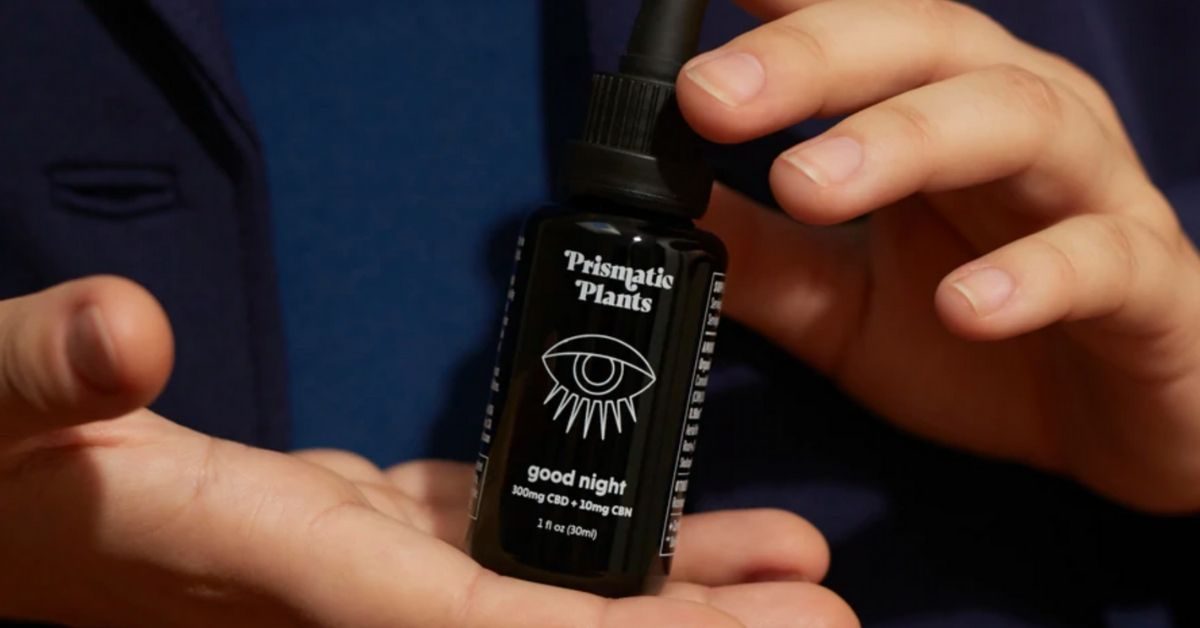
As one happy user, Jo M, reports:
“This gorgeous tincture is now and forever part of my nighttime wellness routine. The CBD and CBN helps me to relax into sleep and then stay asleep.”

Get 15% off by subscribing to Prismatic Plants.
5 Top Tips to Improve Your Sleep Habits During Your Period
While you can’t fight nature and you’ll likely still experience some of these symptoms during your menstrual cycle, there are plenty of things you can do to lessen the blow.
1. Keep a sleep diary

This is a simple way to get a baseline of how you are feeling before sleep and upon waking.
A sleep diary or morning journal doesn’t need to be complicated. Just grab a notebook and record a few simple data points.
For example:
- Sleep time and wake time
- How you feel before and after going to sleep
- What you were doing in the couple hours before bed
- How much caffeine you drink and when
- Your sleep environment
- Anything else you think may be relevant to your sleep
Once you have this information, you can start to notice patterns and choose solutions that fit best for you.
2. Improve your sleep environment
You may not realize it, but your sleep environment may be messing with your sleep.
Too much light and heat affect melatonin production, while noise and unpleasant smells stop you drifting off.
- Reducing the amount of light in your room
- Lower the room temperature to the mid-60s Fahrenheit
- Cut out unnecessary noise
- Quit your cell phone earlier
For more sleep environment tips, read our article on how to enhance your bedroom for sleeping.
For a quick first step, pick up a white noise machine and a good pair of blue light blocking glasses.
3. Try non-pharmaceutical sleep supplements
As an alternative to sleeping pills, try non-pharmaceutical sleep supplements.
If you are pregnant, taking medications, or have a medical condition, be sure to consult your health care provider first.
From our research, Snoozerville would recommend:
4. Get regular exercise
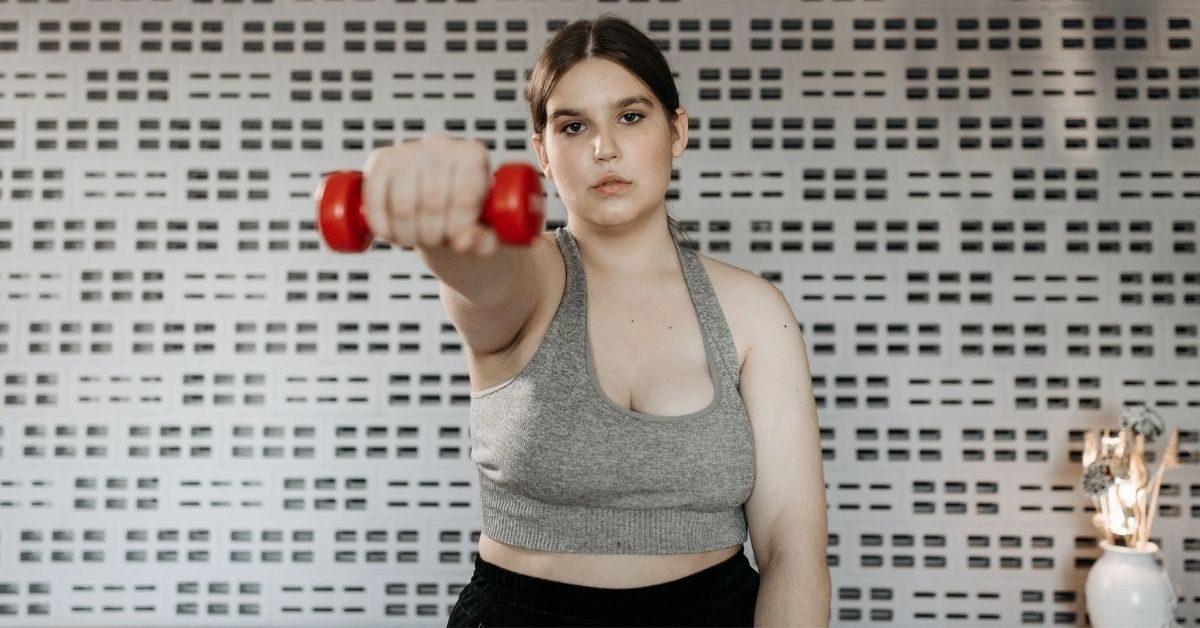
We get it. The last thing you want to do when you’re cramping is move your broken body.
But. If there were ever a fountain of youth (and good sleep!), it would be exercise.
In our modern sedentary lives, we just don’t move our bodies enough on a daily basis. This is worse when your period is already making you feeling sluggish.
Getting regular exercise throughout your cycle can help to improve the quality and quantity of sleep. You aren’t meant to be sitting all day and your sleep cycle knows that.
Go for a light walk or do some at-home yoga to get yourself moving during the day. But avoid high-intensity exercise near bedtime as it can rev you up and make it harder to sleep.
5. Improve your sleep hygiene
There are so many ways to improve sleep hygiene. If you have already begun to optimize your sleep environment, you are off to a good start.
Improving your sleep hygiene isn’t difficult.
To start, cut back on your use of blue light-emitting devices for at least an hour before bedtime. If you absolutely must be on your phone or laptop, pop on some blue light glasses.
Create a bedtime routine.

Try a warm bath in the evening. Not only does it relax your muscles, when you step out the warm water, your body cools. This signals melatonin production, making you feel sleepy.
Commit to a regular sleep/wake time to promote a consistent sleep cycle. Adopting a normal sleep pattern can also help prevent future sleep disorders. Link
And as hard as it may be, avoid drinking caffeine after around 2:00 PM. Caffeine stays in your system much longer than you can feel the immediate effects and has been shown to disrupt sleep even many hours after that last cup. Try one of these awesome coffee alternatives instead.
To a better period
Now that the question, ‘how do periods affect sleep’ has been answered, you can start to figure out what sleep solutions may alleviate your period-related sleep problems.
You can start today by optimizing your sleep environment and making some simple lifestyle changes to improve your quality of sleep.
Remember, sometimes you get caught in an anxiety loop. To calm your hormones, mind, and emotions, try Prismatic Plants Good Night CBD formula.

Welcome to Snoozerville! I’m Dr. Alex Hartley, your guide to the world of restful sleep. With a Ph.D. in Sleep Science and years of experience as a sleep therapist, I’ve dedicated my life to understanding and improving sleep quality. My passion lies in uncovering the mysteries of sleep and sharing practical, science-backed advice to help you achieve the best rest possible. Beyond my academic pursuits, I’m an advocate for mindfulness and relaxation techniques, which I incorporate into my daily routine. At Snoozerville, I aim to transform your nights, combining the latest research with easy-to-implement tips. Whether you’re a chronic insomniac or just looking to improve your sleep hygiene, join me on this journey towards peaceful, rejuvenating sleep.

